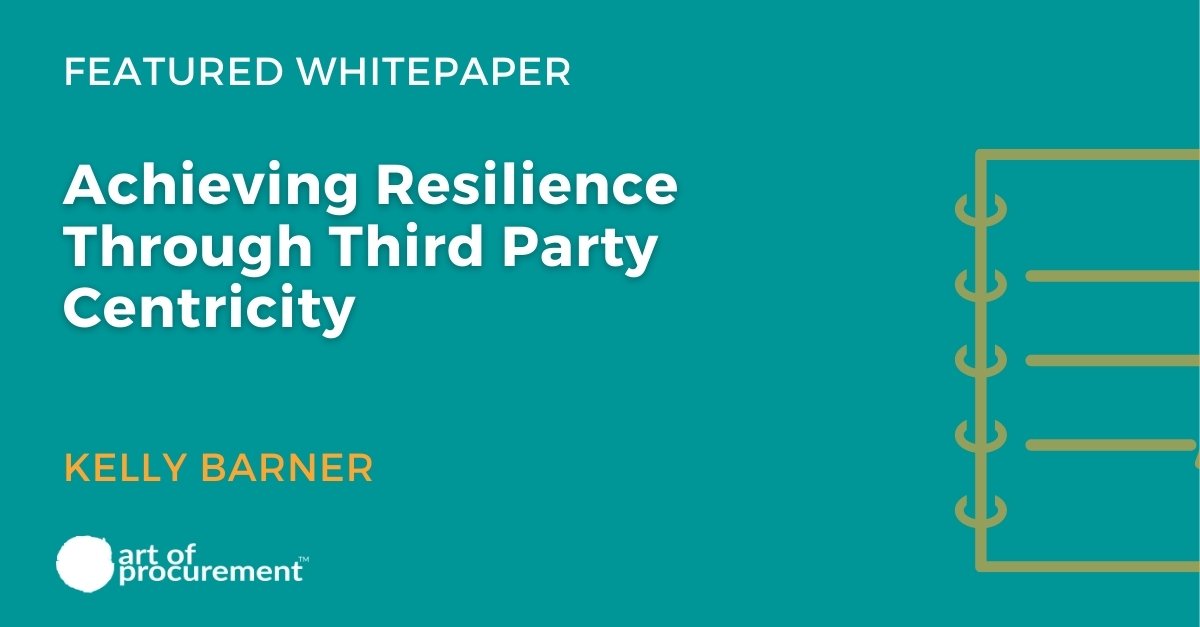
When disruptive times hit, trying to keep things as stable as possible is a natural response. And while it is understandable, it isn’t always the most strategic option for a business – or a procurement organization.
KPMG, LLP recently published a report titled, “The Future of Procurement.” In it they make the case that procurement not only needs to help the organization as a whole deal with disruption, they also need to drive their own form of disruptive change.
In particular, they point to the importance of leveraging supplier capabilities and relationships, becoming more resilient through third party centricity.
A few key data points included in the report include:
- Only 7% of operations professionals are focusing on improving outcomes for third parties and suppliers for their digital transformation efforts.
- 85% of operations professionals believe that their function has a vital role to play in helping the business to address ESG issues.
- Only 47% of operations professionals are very satisfied with their ability to use data to support financial and operational analytics, and 35 percent with applying advanced analytics to data.
At the end of the report, readers are asked to answer a number of questions that should guide how they think about future procurement operating models. These questions include:
- What business disruptors are affecting you most?
- What business questions and decisions should be anticipated to address these disruptors?
- How are you enabling your customers to more easily do business with procurement?
- How do you engage suppliers to move beyond a sole focus on cost and quality?
- How is procurement using external insights, tools, and technologies to drive better outcomes?
- How easily will your organization pivot given the volatile world in which we operate?
To access KPMG, LLP’s insights into how to start thinking about the answers to these questions and what you can do to increase third party centricity, download the paper here – with no email address required.




